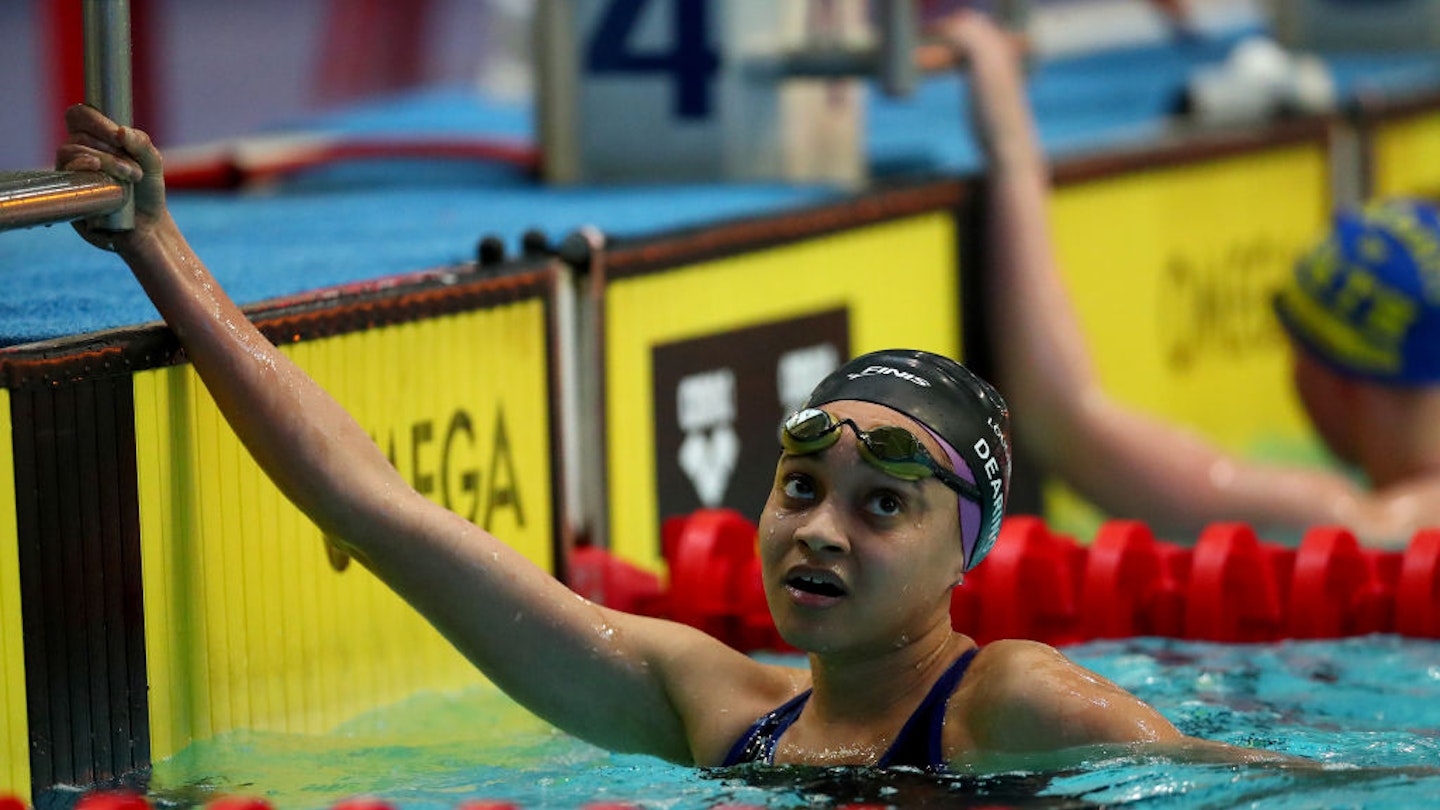The moment Alice Dearing took her first stroke in the open waters of Odaiba Bay – she had already made history.
The 24-year-old from Birmingham came 19th in the 10 kilometres open water race this morning. Despite feeling “broken” after her defeat, Dearing is still the first black woman to compete in the Great Britain Olympic swimming team.
Her very presence in Team GB has done more for representation in aquatics than she can imagine. Swimming has a problematic history in the black community and watching Alice represent at such a high level makes such a huge impact. The Olympian’s parting message from the Tokyo Olympics is one of inspiration, breaking boundaries and perseverance.
“ I really hope this makes a difference, I really hope people look at this and think it’s possible and do able for anyone out there – I just want people to know it’s [swimming] open and available for everybody.”
Alice previously hit headlines for her tireless work to make aquatics more inclusive. Earlier in the year the topic of discussion was the Soul Cap after it was banned from the Olympics. The Soul Cap - which is worn by the Olympian is an extra-large silicone cap they designed specifically to protect dreadlocks, hair extensions, braids, thick and curly hair.
This led to an outcry from social media and black swimming circles. Alice voiced her disappointment and there were petitions to demand a reversal on the decision. The message the ban sends to the black community is one of dismissal rather than inclusion in aquatics. There is also clearly still a lack of education as to why the Soul Cap is a necessity.
When the Soul Cap came up as a prominent topic of conversation, my mind was instantly transported back to school when swimming was non- negotiable. I excelled in dance, athletics and football but when it came to getting in the water…I just was not as keen.
I did enjoy swimming for fun on holiday – but during school hours it always had its problems. Whether it was that time of the month or the dread at the thought of having to comb through my natural hair afterwards - basically…I did everything I could to avoid it.
I remember weekly pulling tightly on the silicone swimming caps so it would fit over my head while simultaneously covering the large voluminous bun on the top of my head. It always took me a few attempts- and then a few more to help my other black friends who were having the same issue. Once the water touches our afro hair it shrinks, and the chlorine also contains damaging chemicals. Chlorine is damaging to all hair types but can be extremely drying to afro hair, leading to breakage.
Perhaps if all those years ago there was something like the Soul Cap – I wouldn’t have been filled with so much dread. It’s genius and something that would have made my hair much easier to manage after being ordered to do laps of the pool. Without the platform Alice has, I wouldn't of even known anything like the Soul Cap existed.
The 24-year-old also co-founded the Black Swimming Association (BSA). Statistics from Sport England found that 95% of black adults and 80% of black children do not swim in England. Furthermore, 1 in 4 children who compete in primary education are unable to swim. According to the world health organisation the risk of drowning is higher amongst ethnic minorities. Staring the BSA meant Dearing and team were on a mission to change these statistics.
The BSA’s goals are to reduce drownings, teach water safety, educate the aquatic workforce about the barriers faced in the sport for ethnic minorities and to create inclusive career pathways in aquatics.
She opened up to the Independent on her motivations for starting this company. “I co-founded the Black Swimming Association to help break down the barriers which have prevented people from taking part in swimming for so long. She continued "These are the stereotypes which stop people from wanting to get in the water, such as black people’s brains are too dense, that we don’t float in the water, all these horrible, messy stereotypes which prevent people from wanting to venture into swimming or even learning to swim.
Stereotypes like this are deeply rooted in history and have steered the black community away from swimming. Due to the discriminatory and segregated past of swimming – many black families are taught to fear swimming. Watching Alice educate the nation while pushing for the Soul Cap and creating the BSA is no small task. Dearing herself recognised that the “cultural and historical weight” of the qualification and that it was ‘ all guns blazing’ for the final.
When I think back, swimming wasn’t really an activity people around me were taking up as a hobby, nor was it seen at a professional level. But swimming is not just a sport it’s an essential life skill needed for survival. Therefore, it is dangerous that swimming is seen as an afterthought within the majority of the black community.
But as I’ve grown up and particularly through Alice Dearing’s efforts, I have been remined on the need to better my skills in swimming. Through initiatives like the Soul Cap and hearing Alice’s opinions I think it will encourage more people within the black community to open their minds to taking on swimming regularly – even if that means learning for the first time as an adult.
Alice Dearing really is an inspiration and has provided representation in a sport that otherwise lacked the information on the need to encourage ethnic minority communities. Through her efforts, I hope there continues to be further conversation and change around inclusivity within aquatics.
I also hope it inspires a whole new generation to see that they can achieve anything if they put their minds to it.
